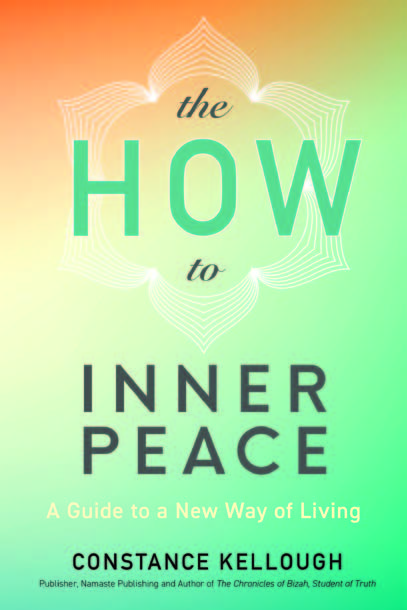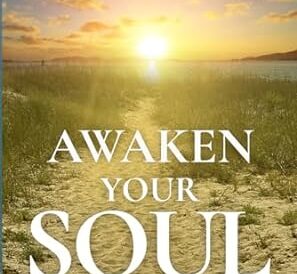The Buddha was asked, “What have you gained from meditation?” He replied, “Nothing. However, let me tell you what I have lost: anger, anxiety, depression, insecurity, fear of death.”
J. Krishnamurti
Some rare individuals have awakened to their true identity spontaneously, but often after experiencing severe suffering; others through devout prayer and service. Meditation, which leads one into a state of stillness, is perhaps the best way for most humans to find out who they truly are.
Spiritual reading, spiritual practices, and also being in a spiritual community will accelerate this process. The longer you meditate regularly, the more you experience the true Self in you emerging. The layers of the false egoic-self start to fall away, so you increasingly become more aware of your true nature and your capacities. Through meditation, we can touch something within us that is eternal. And once we have experienced the eternal within us, we can no longer doubt that we are eternal.
Meditation Is the Way
Through the powerful act of meditation, people come to realize the stillness within that is eternal and all-encompassing. This state of stillness is not personal but universal to all humanity – a fundamental shared element, which sadly for many is yet to be experienced, other than sporadically.
Up until now in human history, most have felt their separation from others, which has led to interpersonal discord and conflict in the world in myriad ways. However, the good news is that as human beings we instinctively also want to be connected to others, to gather with others, feel caring and empathy for and from others. This is an aspect of the pushpull of being human.
Meditation is a way to experience our Oneness. When a sufficient number of us realize our Oneness, it will reach a critical mass, a tipping point that can have an unstoppable and significant positive effect on humanity. It is through meditation we come to realize that not only am I my brothers’ and sisters’ keeper but I am my brothers and sisters.
“What about the other part of humanity that does not come to this realization and still wants to have control over or harm others either overtly or through deprivation?”
That is why our species needs to experience inner stillness by enough humans to bring about the tipping point to a higher consciousness for all. “But what if this never occurs?” Higher consciousness once achieved by individuals, even if not reaching the tipping point in our lifetime, will inform, will be the strongest influence in what humanity experiences hereafter. There is never a loss by moving to a higher state of consciousness.
Our world is not going to be saved solely by human systems, institutions, and high human intelligence, but more importantly by individuals who find and share the love that they are, by going inward through meditation. If meditation is practiced on a worldwide scale, people will come to understand the loving and transformative power it is. This, of course, can only be realized by practicing it. And then, through our experience, we will make this a priority in our lives.
People spend years getting degrees, climbing the career ladder, acquiring things, worrying about their family, trying to improve their health, yet how often do they take time to try to understand why they experience what they do in their lives?
Benefits of Meditation
There are many forms of meditation. All are valuable since they draw us into the present moment and take us inward. The benefits are myriad: from lowering our blood pressure and helping us sleep better to strengthening our immune system and preventing premature aging. All you have to do is search “meditation” on the Internet and you will find pages and pages of the benefits of meditation, most of which are backed by hard science.
What are usually referred to as benefits of meditation can also be seen as outcomes. If you already meditate, a germane question to ask yourself is, “Why do I meditate?” Are your reasons outcomes of meditation, while meditation is the cause? If you don’t limit your desired outcomes of practicing meditation, you open yourself to experiencing many more.
When You Meditate, You Do Not Meditate Only for Yourself
Our consciousness affects everyone around us. If a person meditates, they will affect others around them in a positive way. For example, if one person in a household meditates, it benefits all in that household. The same is true of communities such as church congregations, towns, and cities.
In 1976, this was documented by scientific research when the outcome of 1% of a community that practiced Transcendental Meditation had the effect of bringing the crime rate down in that community by 16% on average. Although there is yet little scientific evidence of the benefits of meditation to society as a collective, the myriad benefits to the person who meditates, including reduction of stress, anxiety, and depression, predictably point to outcomes such as a positive reduction in car accidents, suicides, mental illness and drug abuse.
Maharishi Mahesh, an Indian yogi, brought to the attention of the world by the Beatles who learned Transcendental Meditation from him in his ashram in India, predicted that only 1% of the population meditating and coming from loving intentions would be sufficient to improve humanity’s quality of life and usher in world peace. If this is the case, given that there are approximately 7.8 billion people in our world currently, if one percent meditated regularly, meaning 78 million, we would see a different world. Individuals to groups, to groups within groups meditating worldwide would bring more peace and harmony to humanity that would emanate from such meditations.
Excerpted from The HOW to Inner Peace ©2021, with permission by Namaste Publishing.
 Constance Kellough is an Author, Teacher of Innerbody Mediation and Founder of Namaste Publishing. Constance is a visionary who popularized the self-help genre, bringing revolutionary, spiritual teachings to the forefront of modern culture. Her first publication, The Power of Now introduced Eckhart Tolle to the world. Since 1997, she has gone on to publish more ground breaking, inspirational books by such authors as Dr. Shefali Tsabary, Michael Brown and Dr. David Bercelli. These books and many others have changed the dialogue around Conscious Parenting, Spirituality and Trauma Release theories worldwide. She has authored two books of her own; The Chronicles of Bizah, Student of Truth (published 2020, and The HOW to Inner Peace (published 2021) constancekellough.com.
Constance Kellough is an Author, Teacher of Innerbody Mediation and Founder of Namaste Publishing. Constance is a visionary who popularized the self-help genre, bringing revolutionary, spiritual teachings to the forefront of modern culture. Her first publication, The Power of Now introduced Eckhart Tolle to the world. Since 1997, she has gone on to publish more ground breaking, inspirational books by such authors as Dr. Shefali Tsabary, Michael Brown and Dr. David Bercelli. These books and many others have changed the dialogue around Conscious Parenting, Spirituality and Trauma Release theories worldwide. She has authored two books of her own; The Chronicles of Bizah, Student of Truth (published 2020, and The HOW to Inner Peace (published 2021) constancekellough.com.
















